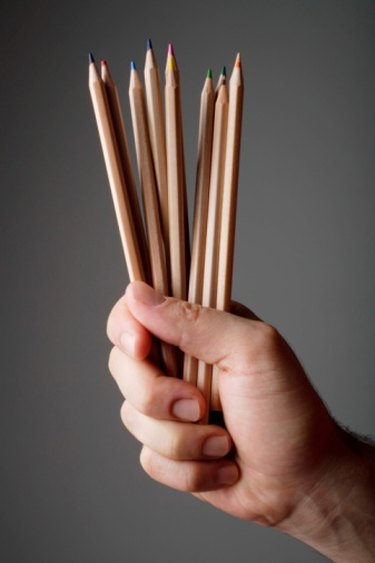Things You'll Need
Paper towel or tissue
Kneaded eraser
White vinyl eraser

Even the most experienced artist is bound to make mistakes. When working with black or colored pencils on paper, a gum eraser is usually a good choice, but you'll find that these erasers don't work on canvas. The rough canvas surface traps eraser dust easier. Without the right eraser, you can make matters worse, spreading the dusty mess around on your canvas. The right eraser and the right usage techniques provide better results.
Step 1
Dab the pencil mark with paper towel or tissue. Before erasing, you want to pick up any loose pieces of graphite dust.
Video of the Day
Step 2
Blot the pencil mark with a kneaded eraser. Don't slide the eraser around too much, as this spreads the mess when using a kneaded eraser. As with the paper towel, the kneaded eraser won't pick up too much of the mark, but it helps with excess dust in preparation for a vinyl eraser.
Step 3
Place a white vinyl eraser on a clean portion of the canvas and wipe it over the pencil mark, straight through to another clean portion of canvas. Vinyl erasers don't work unless you slide them over the mark; you cannot blot a mark with a vinyl eraser. Vinyl does not leave behind as much dust as a gum eraser, and it is ideal for canvas. A vinyl eraser removes soft graphite marks and significantly reduces the appearance of hard graphite pencil marks.
Video of the Day